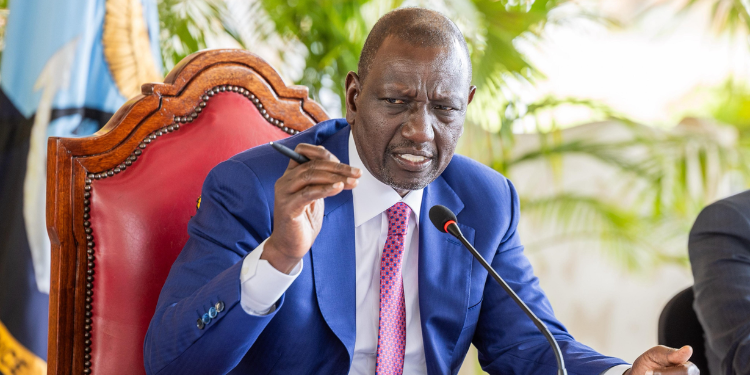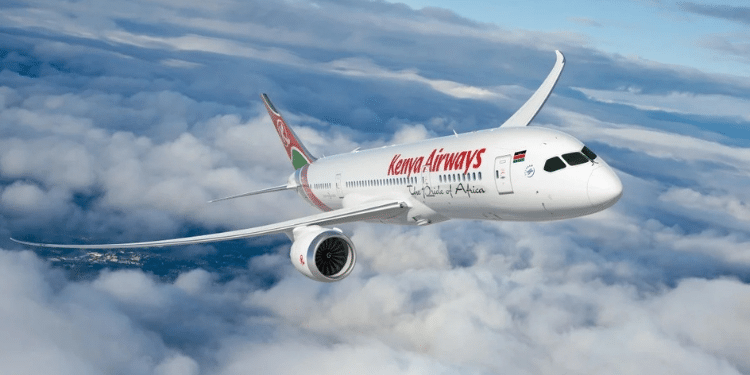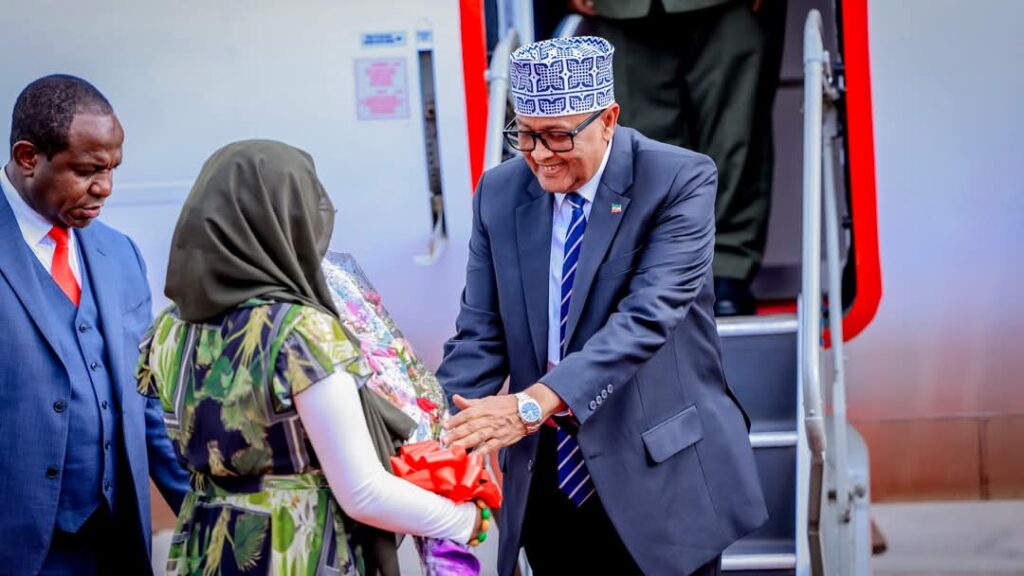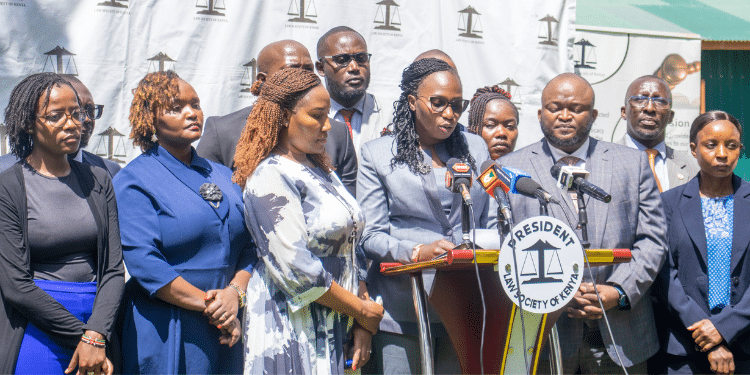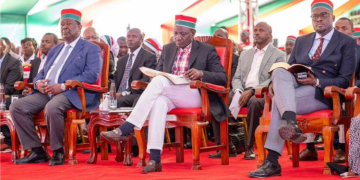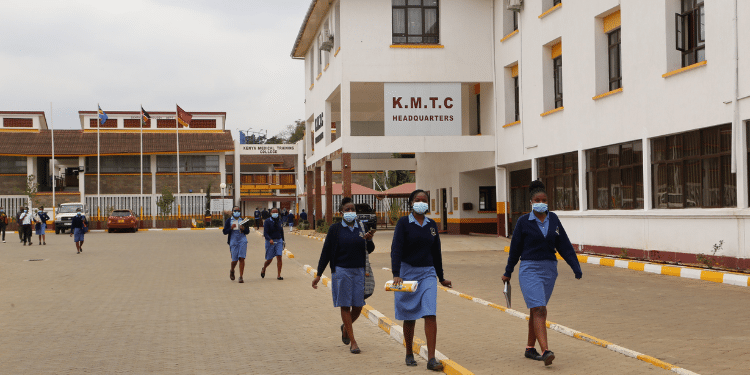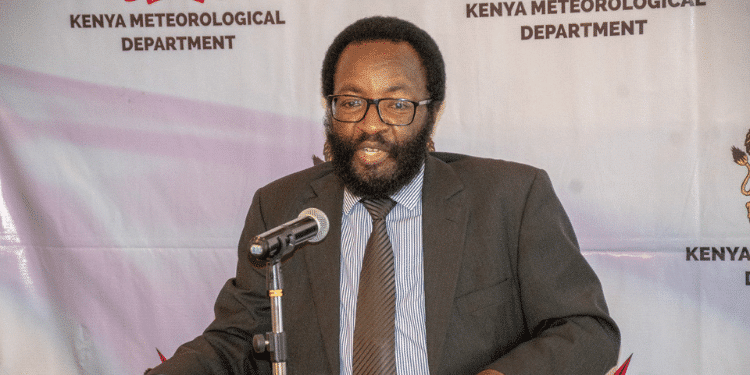The Kenya Meteorological Department (Kenya Met) in partnership with the University of Nairobi (UoN) and the University of Copenhagen on Tuesday, November 3, announced scholarship opportunities for PhD and Postdoc categories.
In a statement, the Kenya Met said the scholarships will focus on climate change attribution, vulnerability, and health.
“We are offering 2 PhD and 2 Postdoc positions with a focus on climate change attribution, vulnerability, and health commencing on the 1st of February 2025,” read part of the statement.
This initiative stems from the observation that current studies predominantly focus on hazards affecting the Global North and often examine changes in weather patterns in isolation from the socio-economic and political factors influencing community resilience.

Kenya Met announces PHD and Postdoc scholarships in partnership with UoN
This raises a crucial question about how these advances in climate science can be combined with a human-focused approach to vulnerability to create climate-resilient societies.
According to Kenya Met, PhDs and Postdocs will join an interdisciplinary team comprising researchers from the University of Nairobi, Imperial College London, the Kenya Meteorological Department, the University of Copenhagen, and the Danish Meteorological Institute.
The team will focus on climate attribution, vulnerability, disaster management, climate policy, and adaptation science.
Team behind the Scholarship project
The project is spearheaded by Emmanuel Raju from the University of Copenhagen and Joyce Kimutai, affiliated with both the Kenya Meteorological Department and Imperial College London.
Co-Principal Investigators include Gilbert Ouma and Maggie Opondo from the University of Nairobi. All PhDs and Postdocs will receive joint supervision and support from team members across the participating institutions.
Fieldwork will be conducted in Kenya (Nairobi, Mombasa, and Isiolo) with close collaboration between all partners, including the Kenya Meteorological Department, Imperial College London, the Danish Meteorological Institute, the University of Copenhagen, and the Kenya Red Cross Society.
Also Read: China and Hungary Announce Scholarships for Kenyan Students
The PhDs and Postdocs will have the opportunity to participate in exchange visits at the University of Copenhagen or Imperial College London. Additionally, they will have the chance to spend an extended period at either institution.
Details of the opportunities
Candidates must be willing to spend up to three months abroad, while postdocs will spend a shorter duration.
All positions offer a competitive stipend (Ksh2.7million for Postdocs and Ksh1.3 million for PhDs; annually), with all research expenses, including registration and tuition fees, fully covered.
Qualifications to be considered for PhD 1: Physical Sciences with a focus on Climate Change Attribution (3 years)
The candidate must be a candidate with a Masters Degree in climate science, meteorology, atmospheric science, physics, or a related field.
The candidate should have interest in climate analysis and readiness to work (or keen to learn working) with climate models and scientific programming.
Some of the key tasks for the PhD student will include carrying out an independent research study under supervision and Completing PhD coursework as stipulated by the respective department at the University of Nairobi.
Qualifications to be considered PhD 2: Social Sciences a with focus on Vulnerability (3 years)
Must be a candidate with a strong social science background with a Masters degree related to the subject area of the project, e.g. climate change, global health, disaster risk management, sociology, political science, anthropology, development studies or closely related fields.
Some of the key tasks for the PhD student will include carrying out an independent research study under supervision and completing PhD course work as stipulated by the respective department at the University of Nairobi.
Qualifications to be considered for Postdoc 1: Climate Change Attribution (2 years)
Must be a candidate with a PhD in climate science, meteorology, atmospheric science, physics, or a related field. Expected to have experience analyzing and working with weather/atmospheric observations and/or climate models. Experience with Python or R is preferred is also an added advantage.
The postdoc will work closely with the senior leadership team with joint-supervision and support from members at The University of Nairobi, Imperial College London, Kenya Meteorological Department and Danish Meteorological Institute
Qualifications to be considered for Postdoc 2: Climate Change Vulnerability (2 years)
Must have a PhD degree and a strong social science background in climate change, global health, disaster risk management, sociology, political science, anthropology, development studies, and closely related fields of study.
The postdoc will also work closely with the senior leadership team and conduct empirical fieldwork studies across the project sites in Kenya.
How to apply
Application for the PhD positions is online through the University of Nairobi website https://application.uonbi.ac.ke/. A non-refundable application fee (approximately 6,509) will be charged.
Requirements for upload
1. A Form four certificate, or equivalent
2. A certified copy of an undergraduate degree from a senate-recognized university, or equivalent
3. Certified copies of undergraduate degree transcripts
4. A certified copy of a relevant Master’s degree from a senate-recognized university, or equivalent
5. A certified copy of the Master’s degree transcript.
Also Read: Govt Announces Fully Paid Scholarships for Kenyan Students in Australia; How to Apply
Application for the Postdoctoral positions should be directed to the email address [email protected] with “Postdoctoral Position for CAV Project” as the subject.
Requirements to be attached
1. Letter of motivation (max. 1 page, Font New Times Roman 12pts) in English
2. Curriculum Vitae (CV) in English with your photograph embedded
3. A copy of an undergraduate degree from a senate-recognized university, or equivalent
4. Copies of undergraduate degree transcripts
5. A copy of a relevant Master’s degree from a senate-recognized university, or equivalent
6. A copy of the Master’s degree transcript
7. Two signed recommendation letters (at least one from the Chairperson/Director of the institution you are currently working in, or from a member of staff for the institution of your last degree)
Applications are currently open and will close on January 25.
Follow ourWhatsApp Channel and join our WhatsApp Group for real-time news updates.








